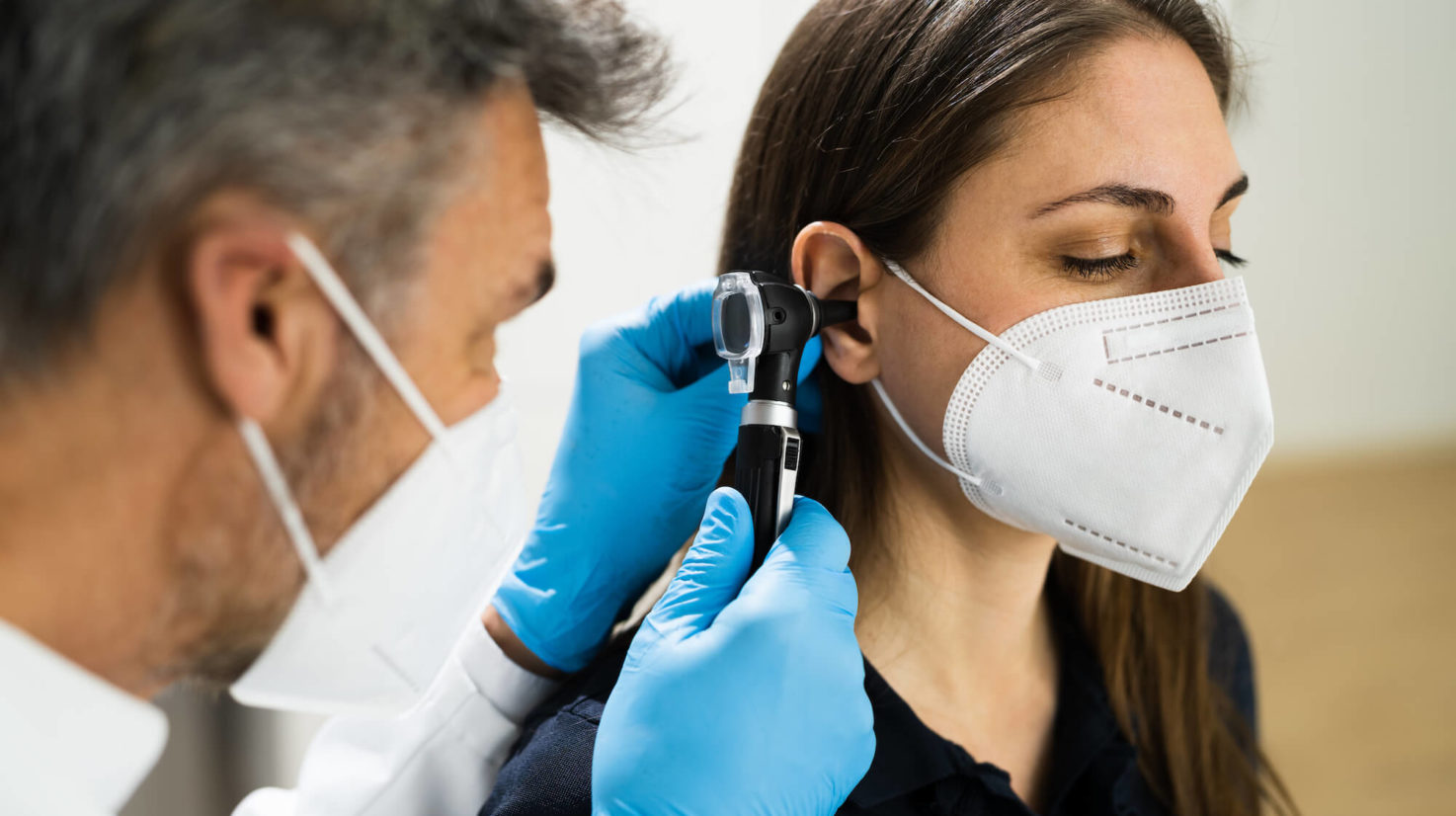When It's Time to See a Voice Specialist
Wiki Article
Discovering the Area of Otolaryngology: What to Expect When You Speak With an ENT
Otolaryngology, frequently referred to as ENT, encompasses the diagnosis and treatment of nose, throat, and ear problems. Otolaryngology. For those experiencing related issues, speaking with an ENT specialist can give quality and alleviation. Recognizing what to anticipate during such consultations is vital for efficient interaction and treatment. This introduction will describe key aspects of the ENT experience, including usual factors for sees and the procedures included in medical diagnosis and therapyRecognizing Otolaryngology: An Overview
Otolaryngology, often referred to as ENT (Nose, throat, and ear) medicine, is a customized branch of medicine that concentrates on the diagnosis and therapy of conditions affecting these essential locations of the human body. This field incorporates a large range of conditions, including those relevant to hearing, equilibrium, breathing function, and speech. Otolaryngologists are educated to manage both clinical and surgical therapies, using sophisticated techniques and technologies. Their experience extends beyond typical ailments, resolving issues such as allergies, sinus infections, and hearing loss. Furthermore, they play a critical duty in the administration of head and neck cancers, providing comprehensive care tailored to individual client demands. Overall, otolaryngology stays crucial for maintaining health and quality of life in affected people.Common Reasons to See an ENT Specialist
Lots of individuals look for the expertise of an ENT expert for a variety of factors, mirroring the varied nature of problems that influence the ear, nose, and throat. Usual problems consist of chronic sinusitis, which usually leads to persistent nasal blockage and facial discomfort. Allergic reactions and their connected signs, such as sneezing and itching, also motivate brows through to these specialists. Hearing loss, whether progressive or sudden, is one more substantial reason for assessment. Additionally, people may seek assessment for throat conditions, including relentless hoarseness or swallowing troubles. Rest apnea, defined by interrupted breathing during rest, is frequently dealt with by ENT professionals. Each of these problems highlights the relevance of specialized care in managing complex ENT-related health problems.Preparing for Your ENT Appointment
When preparing for an ENT appointment, it is vital to gather pertinent information and consider any type of details issues. Individuals ought to compile a detailed case history, including previous ear, nose, or throat concerns, surgical procedures, and current medications. Recording signs-- such as extent, period, and regularity-- can offer valuable insights for the ENT specialist. In addition, individuals must prepare a list of inquiries they desire to ask, making certain that all problems are addressed during the check out. Bringing along any appropriate clinical documents or test outcomes can additionally assist the ENT in recognizing the individual's condition. Clients should verify their visit details, consisting of time, place, and date, to lessen any kind of final complication. Appropriate prep work can improve the efficiency of the examination and bring about much better results.
What to Expect Throughout the Appointment
As the appointment starts, the individual can anticipate to involve in a complete conversation with the ENT expert concerning their symptoms and case history. The professional will certainly inquire concerning the duration, frequency, and seriousness of signs such as hearing loss, nasal congestion, or sore throat. In addition, the individual's previous medical conditions, medicines, and any kind of appropriate household history will be examined, aiding the specialist in forming a total understanding of the individual's health. The ENT may also ask concerning lifestyle variables, such as exposure to irritants or irritants. This open dialogue develops a foundation for the assessment, making certain that the individual's concerns are resolved and establishing the stage for any type of necessary analyses or recommendations for treatment.Analysis Examinations and Procedures in Otolaryngology
A variety of analysis examinations and procedures are crucial in otolaryngology to accurately review and diagnose conditions impacting the ear, throat, and nose. Usual tests include audiometry, which gauges hearing feature, and tympanometry, analyzing middle ear stress. Nasal endoscopy allows visualization of the nasal flows and sinuses, while laryngoscopy examines the throat and singing cords. Imaging methods, such as CT scans and MRIs, supply comprehensive views of head and neck frameworks. Allergy testing might likewise be performed to identify triggers for sinus or breathing problems. These diagnostic tools allow ENT specialists to develop a thorough understanding of patients' conditions, guaranteeing tailored and reliable management plans. Appropriate diagnosis is essential for successful therapy results in otolaryngology.Treatment Alternatives Offered by ENT Specialists
ENT specialists supply a selection of therapy options tailored to deal with specific problems affecting the nose, throat, and ear. These treatments vary from traditional methods, such as medication and way of living adjustments, to more intrusive treatments. Allergic reactions might be taken care of with antihistamines or immunotherapy, while chronic sinusitis may need nasal corticosteroids or sinus surgical procedure. For hearing loss, ENT specialists commonly recommend listening device or medical treatments like cochlear implants. In cases of throat problems, options can consist of speech therapy or surgeries to get rid of blockages. Additionally, they may offer support for managing sleep apnea, including making use of CPAP gadgets or medical treatments. Overall, the objective is to improve individuals' quality of life through personalized treatment and efficient treatment approaches.When to Look For Follow-Up Care With an ENT
When to look for follow-up care with an ENT specialist is important for managing recurring signs and symptoms or issues related to ear, throat, and nose problems, identifying. Individuals should consider arranging a follow-up consultation if symptoms persist regardless of preliminary therapy, such as chronic ear pain, nasal congestion, or throat pain. Adjustments in hearing, equilibrium concerns, or unusual nasal discharge may additionally require additional examination. Additionally, if a person experiences negative effects from recommended medications or has actually gone through a surgery, follow-up care is necessary to keep an eye on recovery and address any type of worries. Timely consultations can assure reliable monitoring of conditions, avoid possible issues, and provide comfort concerning one's wellness. Looking for follow-up care promotes aggressive health management in otolaryngologyFrequently Asked Concerns
What Certifications Should I Look for in an ENT Professional?
When looking for an ENT professional, one need to try to find board certification, appropriate experience, and solid person evaluations. Furthermore, effective communication skills and a compassionate method can considerably enhance the total therapy experience.Just how Do I Pick the Right ENT for My Needs?
Selecting the best ENT professional entails evaluating their credentials, experience, and client testimonials. It is necessary to contemplate their interaction design and strategy to therapy, guaranteeing they line up with the individual's particular Hearing health and wellness demands and choices.Exist Any Threats Connected With ENT Procedures?
The risks related to ENT procedures may include infection, blood loss, anesthetic issues, and possible damage to bordering structures. Clients should talk about these risks with their doctor to comprehend private problems and warranty notified choices.Just How Can I Handle Anxiety Before My ENT Appointment?
To manage anxiety prior to an appointment, individuals can exercise deep breathing workouts, visualize positive outcomes, prepare concerns beforehand, and look for assistance from good friends or family, promoting a sense of peace of mind and calmness.
What Should I Do if I Experience Side Effects From Therapy?
The person should quickly report them to their medical care service provider if side effects from treatment occur. Modifications to treatment or additional treatments might be essential to ensure safety and effectiveness in handling their condition. As the examination starts, the patient can expect to involve in a comprehensive conversation with the ENT specialist about their signs and medical history. These diagnostic devices allow ENT professionals to create an extensive understanding of individuals' problems, guaranteeing tailored and efficient monitoring strategies. ENT experts use a selection of treatment options customized to attend to certain problems impacting the ear, throat, and nose. When seeking an ENT expert, one ought to look for board accreditation, appropriate experience, and solid individual testimonials. Picking the ideal ENT specialist involves reviewing their credentials, experience, and patient reviewsReport this wiki page